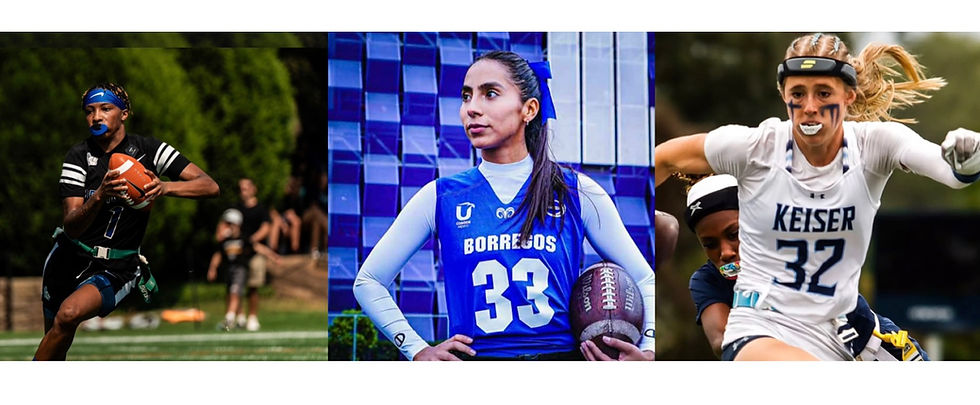The NFL’s Disqualification of Bob Blitz and its Impact on the Rams Lawsuit
- Alex Patterson
- Nov 8, 2021
- 3 min read
Updated: Aug 3, 2022
Ben Frederickson from the St. Louis Post Dispatch and Randy Karraker from 101ESPN Radio reported that Judge McGraugh granted the NFL’s Motion to Disqualify Bob Blitz as an attorney for the plaintiffs, St. Louis, the CVC, and the RSA. Attorney Blitz, as reported by Joel Currier from the St. Louis Post Dispatch, is on the defendants’ witness list. Is this ruling a true “win” for the NFL?
The basis for Judge McGraugh’s ruling is that Mr. Blitz worked on the stadium task force team back in 2015, and should he keep working as an attorney for the plaintiffs, this may have been prejudicial to the defendants. Judge McGraugh had to grant the motion to dismiss him as an attorney, and I agree with his decision. However, Judge McGraugh said the plaintiffs can keep and use the work Mr. Blitz conducted and prepared prior to his disqualification. Should the plaintiffs have lost his work, they would have lost an enormous chunk of their case.
The American Bar Association Model Rules of Conduct, specifically Rule 3.7 “Lawyer as Witness,” state: “(a) A lawyer shall not act as [an] advocate at a trial in which the lawyer is likely to be a necessary witness . . ..”
Mr. Blitz will likely be a necessary witness in the defendant’s case, and his testimony relates to a contested issue, the defendants’ fraudulent misrepresentation towards the plaintiffs, among the other complaints the plaintiffs bring forward. He had first-hand knowledge about the task force’s efforts to try to speak to the Rams organization, Head of Relocation Eric Grubman, and the NFL about why the team should stay in St. Louis. He and former Anheuser-Busch president Dave Peacock proposed an open-air stadium, secured the National Car Rental naming rights, convinced the city and aldermen to allow the vote that went in their favor. The defendants want to convince the jury that Mr. Blitz and Mr. Peacock were the ones that convinced the city and taxpayers to spend $18 million on the stadium project. They want to show that the city and taxpayers would have kept the $18 million. The NFL did not force the taxpayers and city to spend the money, it was Blitz’s and Peacock’s fault they spent that money.
This disqualification could be a blessing in disguise for the plaintiffs. Blitz’s disqualification allows him to speak his mind about what really happened in 2015 and January of 2016. He can clarify what went on in those meetings with Grubman, Goodell, the owners, the Los Angeles Committee, and the city. He can show they acted in good faith and did not put an undue burden on the city and the taxpayers to spend $18 million only to receive nothing in return. Instead, they lost the Rams.
The work-product doctrine is the plaintiffs’ saving grace. Under the Federal Rules of Civil Procedure (FRCP) Rule 502, it states: “[A]n adverse party generally may not discover or compel disclosure of written or oral materials prepared by or for an attorney in the course of legal representation, especially in preparation for litigation.” However, under (FRCP) Rule 26(b)(3), “an adverse party may discover or compel disclosure of work product upon a showing of "substantial need" and "undue hardship." The defense could not show this to gather Mr. Blitz’s work, so the plaintiffs can keep it under the Work Product Doctrine.
Mr. Blitz’s disqualification seems like a win for the defense at first sight, but it could be a curveball in this upcoming trial. Let me know who you think Mr. Blitz’s disqualification as an attorney for the plaintiffs benefits more, the plaintiffs’ side or the defense’s side.







EPS Machine EPS Cutting…
EPS Machine Eps Raw…
EPS Machine EPS Recycling…
EPS Machine EPS Mould;
EPS Machine EPS Block…
EPP Machine EPP Shape…
EPTU Machine ETPU Moulding…
EPS Machine Aging Silo…
EPTU Machine ETPU Moulding…
EPS Machine EPS and…
EPS Machine EPS and…
AEON MINING AEON MINING
AEON MINING AEON MINING
KSD Miner KSD Miner
KSD Miner KSD Miner
BCH Miner BCH Miner
BCH Miner BCH Miner
EPS Machine EPS Cutting…
EPS Machine Eps Raw…
EPS Machine EPS Recycling…
EPS Machine EPS Mould;
EPS Machine EPS Block…
EPP Machine EPP Shape…
EPTU Machine ETPU Moulding…
EPS Machine Aging Silo…
EPTU Machine ETPU Moulding…
EPS Machine EPS and…
EPS Machine EPS and…
AEON MINING AEON MINING
AEON MINING AEON MINING
KSD Miner KSD Miner
KSD Miner KSD Miner
BCH Miner BCH Miner
BCH Miner BCH Miner